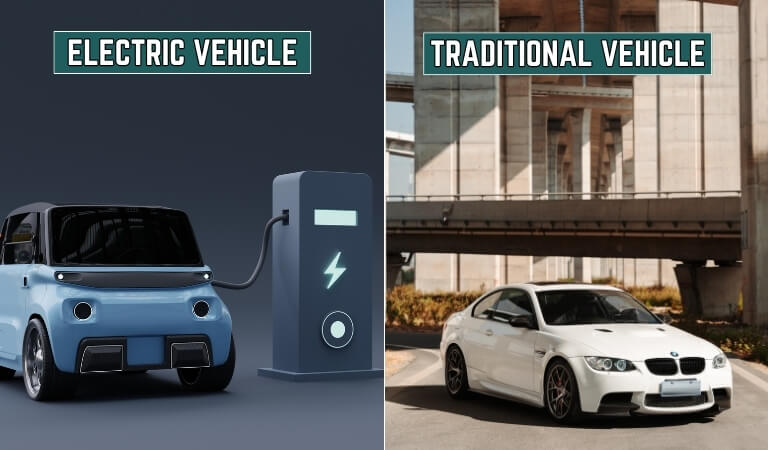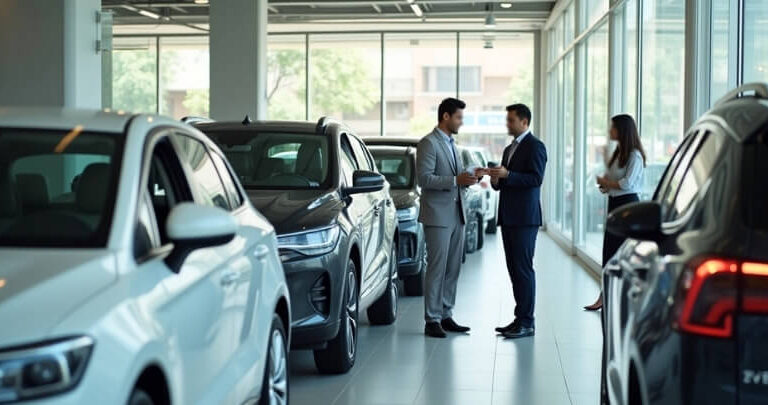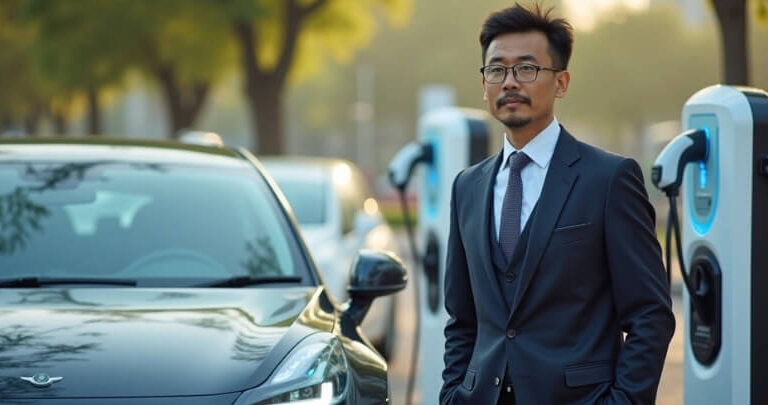Electric vehicles (EVs) are becoming more popular in Bangladesh. They cost less to run and are better for the environment. Still, most people use fuel-powered cars. This is because EVs are still new, and charging stations are hard to find. But, exactly, how does the resale value of EVs compare to traditional vehicles in Bangladesh?
Fuel-powered cars have a higher resale value at the moment. They are more common, and more people are willing to buy them. EVs sell for less because there are fewer buyers, and charging can be a problem. However, EVs have lower taxes and running costs, which means their resale value could increase by 2030 as more people start using them.
Keep reading to learn more about what’s changing.
How Does the Resale Value of EVs Compare to Traditional Vehicles in Bangladesh?
The resale value of traditional cars is higher at the moment since they are more common and easier to sell. EVs are still new, and fewer people buy them. One reason is the lack of EV charging stations in Bangladesh, which makes buyers unsure. But as more stations and support grow, EV resale value should get better by 2030.

Factors That Affect the Depreciation Rates of EVs Versus Gasoline Cars in Bangladesh
Several things affect how fast electric vehicles (EVs) and fuel-powered cars lose value over time in Bangladesh:
Taxes and Rules
- The government now uses motor power (in kilowatts) to tax EVs, similar to how it uses engine size (cc) for gasoline cars. This can change the starting price and resale value of EVs.
- Also, current tax rules reduce prices for older imported cars. This mostly helps gasoline cars, which are often used and reconditioned.
Amount of Vehicles
EVs are still new in Bangladesh, so not many people buy or sell them yet. This makes it harder to sell EVs and affects their value. Gasoline cars are very common, so their resale value is more stable.
Battery Life and Tech Issues
EV value drops faster if the battery is weak or needs replacing. Batteries are expensive and not made locally. In contrast, people are more used to fixing engine problems in gasoline cars.
Daily Costs and Profits
Electric rickshaws, which are a type of EV, show good profits because they cost less to run. This shows that low running costs can help reduce how fast EVs lose value.
Charging and What People Think
There aren’t many EV charging stations yet, and some people don’t fully trust EVs. This makes EVs seem riskier to buy, so they lose value faster. Gasoline cars are easier to fuel and fix, so people feel safer buying them.
Import Taxes and Starting Prices
EVs have lower import taxes (90%) than gasoline cars (up to 350%). That means they cost less to buy, but also may lose value differently. Gasoline cars start out more expensive, so they often lose more value over time.
Are There Any Recent Trends Showing Higher Resale Demand for EVs in Bangladesh?
Yes, there are clear signs that resale demand for electric vehicles (EVs) is rising in Bangladesh. Interest is growing fast due to better infrastructure, local production, and new government plans. Many people now prefer EVs for their lower running costs and environmental benefits. These changes are making used EVs more attractive for future buyers.

Government Plans and Policies
The government plans to make 30% of all vehicles electric by 2030. This goal builds trust in the EV market. Buyers feel more confident investing in EVs now. The resale market is slowly growing because of this support.
Entry of Global EV Brands
Big companies like BYD Auto are launching new electric models in Bangladesh. Their presence brings better quality and more options. People now have access to trusted brands in the EV space. This encourages resale activity and more buyer interest.
Local EV Production and Assembly
Firms like BAIL and Nitol Motors are starting to build EVs in the country. Local production lowers prices and helps availability. More affordable EVs make second-hand buying easier for many. The resale market benefits as supply and demand both rise.
Growth of Charging Infrastructure
Companies like Runner Group are helping build new charging stations across Bangladesh. Charging is now easier and less stressful for drivers. With better access to charging, more people consider buying EVs. This helps grow the resale value over time.
Popularity of Electric Rickshaws
Electric three-wheelers like Easy Bikes are already a big part of daily transport. Over a million are running now. This shows how ready people are to adopt electric options. It also proves resale works well in certain EV types.
Market Forecast and Buyer Interest
Experts expect steady EV market growth from 2024 to 2030 in Bangladesh. More people like EVs because they are cheaper to run. In fact, EV cost efficiency makes buyers more open to long-term ownership. This growing trust increases resale interest.
Increase in EV Imports
Even though EV imports are still low, more are coming into the market each year. New models are arriving through private and public channels. As more EVs enter, buyers get more used to them. That shift helps build a stronger resale market.
EV Events and Public Awareness
Events like BEVMX 2025 help people learn about EVs and how they work. These shows display new technology and ideas. Public interest grows when people see EV benefits in real life. This interest supports higher resale demand in the near future.
How Do Government Policies and Taxes Affect the Resale Value of EVs Compared to Conventional Cars?
Government rules and taxes play a big part in how much EVs can sell for later compared to gasoline cars. These policies affect prices, ownership, and even how easy it is to resell a vehicle. Let’s look at how these rules shape the EV resale market in Bangladesh.
Import Duties and Tax Incentives
- Lower duties on EVs mean buyers can get them for less money, making EVs more popular with shoppers. This helps make resale easier and prices stronger, as more people can afford EVs when they are cheaper.
- The government has offered extra deals for making EVs and batteries in the country, which can cut down future costs. These local deals boost supply and make it simpler for buyers to get second-hand EVs.
Carbon Tax and Environmental Surcharges
- Owners of big, fuel-hungry cars now pay more tax, raising the cost of keeping those vehicles on the road. Because EVs dodge these charges, their resale value gets better compared to gasoline cars.
- Extra taxes for polluting cars make buyers think more about future costs before choosing what type of vehicle to buy. Buyers might then look at EVs as the cheaper, easier choice for their next used car.
Financing and Bankability
- Banks sometimes hesitate to give loans for EVs because resale values are not always clear or stable yet. Better government support or lending programs would make it easier for people to buy and resell EVs.
- A formal, trusted resale market lets buyers and banks feel safer about the value of used EVs. This trust grows the market and helps EVs hold their value better.
Regulatory Framework and Market Development
- When there is no strong policy for EVs and other new vehicle types, it makes buyers and sellers unsure. Uncertainty can lower prices and slow down the growth of the used EV market.
- New laws and drafts promise lower taxes for EVs, plug-in hybrids, and similar cars, which would help with resale. This gives more people the confidence to try EVs, knowing the rules are there to help.
Infrastructure and Consumer Incentives
- The government is building more charging points and offering small bonuses, which makes it easier to own an EV. Better infrastructure means more buyers feel safe choosing EVs, which helps resale.
- When there are perks like cheaper charging or fewer tolls on roads, people see more reasons to switch to EVs. These deals make it easier to sell a used EV, as buyers expect lower running costs.
What Impact Can Limited Charging Infrastructure Have on the Resale Value of EVs in Bangladesh?
Electric vehicles are gaining attention in Bangladesh, but charging challenges are slowing down progress. Buyers worry about where and how to charge. These concerns are now directly affecting the resale value of EVs across the country.

Buyer Trust and Range Concerns
Many people feel unsure about EVs because they fear running out of charge far from a station. This fear, known as range anxiety, makes buyers hesitant and reduces interest in second-hand electric cars. Without easy charging, even short trips seem risky to many drivers. Lower buyer trust leads to weaker resale demand for used EVs.
Market Perception and Investment Risk
People still see EVs as harder to use daily than regular fuel-powered cars in Bangladesh. The small number of chargers makes buyers think EVs are risky to own long-term. This view slows the resale market and leaves sellers with fewer options. Buyers don’t want to invest in cars that they may struggle to maintain.
Uneven Charger Locations and Accessibility
Most charging points are in cities, leaving rural and highway areas with limited support for EV users. Lack of charging stations outside Dhaka makes travel harder and less flexible for EV owners. Resale value drops when people think they can’t use a car freely. Many avoid buying used EVs because of this problem.
Speed of Charging and Daily Use
Faster chargers now exist, but most places still offer slow options that take hours to power up a car. Long waiting times reduce convenience, especially for busy drivers with limited time. Buyers think about this hassle when considering a second-hand EV. Cars that need hours to charge are harder to sell later.
Efforts Toward Better Infrastructure
New plans by private groups aim to fix this issue by building more chargers across the country. Some chargers are fast and use solar power, which adds appeal to climate-aware buyers. As stations spread, people start trusting EVs more for daily use. Over time, better access will increase the value.
Government Support and Future Outlook
The government has set goals to make 30% of vehicles electric by 2030, pushing infrastructure growth. They’ve started offering plans and rules for setting up new charging networks. These actions build hope for a stronger EV market soon. More trust and better access can raise resale value across Bangladesh.
How to Determine the Right Resale Value for Your EV in Bangladesh?
Selling your electric car in Bangladesh takes a few smart steps. The market is still small, but it’s growing. Many things can change your car’s value, like the battery, taxes, or nearby chargers. These simple tips will help you choose the right price.
- Watch the Market: Check if more EVs are selling or new ones are coming in. These changes can help you price better.
- Know the Tax Rules: EVs have lower import taxes than fuel cars. This makes them cheaper and easier to sell later.
- Check the Battery: Buyers want good battery health. Get it tested to know how strong it is before setting your price.
- Compare Other Cars: Look at EVs like yours online. Try to match the price based on size, brand, and features.
- Think About Charging: Cars near charging points or with fast-charging options are easier to sell. Buyers like easy charging.
- Ask an Expert: Let a local EV dealer or expert check your car. They can give you a better idea of its value.
- Watch the Price Changes: Car prices can change fast due to money issues or new rules. Stay updated before you decide.
- Check Online Platforms: Visit EV expos or online car sites. They show how others are pricing their used EVs today.
Frequently Asked Questions about the Resale Value of EVs in Bangladesh
Electric vehicles (EVs) are becoming more common in Bangladesh, but many people still have questions about their resale value. While traditional cars dominate the market, EV resale trends are slowly changing. Here are eight useful FAQs to help you understand more:
Why Do EVs Lose Value Faster Than Fuel Cars Right Now?
EVs often lose value quicker because of limited charging stations, battery concerns, and fewer buyers. These issues make people unsure. As the market grows and support improves, resale values are expected to increase slowly over time.
Do EV Warranties Affect Resale Value in Bangladesh?
Yes, EV warranties can help improve resale prices. Buyers feel safer when a battery or motor is still under warranty. A longer warranty often gives buyers more confidence and can raise a used EV’s value in the market.
Are Some EV Brands Easier to Resell Than Others?
Well-known global brands usually have better resale value. Buyers trust brands with strong service support and known reliability. Models from lesser-known companies may struggle more in resale due to limited repair and parts availability in Bangladesh.
How Does Battery Age Impact EV Resale?
Battery age is a major factor when selling an EV. Older batteries may offer less range, which lowers value. Buyers want batteries that last longer, so newer or well-maintained batteries help keep resale prices higher.
Can Used EVs Compete With Reconditioned Fuel Cars?
Not yet, but the gap is closing. Reconditioned fuel cars are cheaper and more familiar to buyers. However, as EV running costs stay low, more buyers will choose used EVs for long-term savings, boosting their resale value.
How Do EV Software Features Influence Resale?
Software updates and smart features can improve resale value. Buyers like EVs with modern tech that still works well. Cars with outdated or unsupported software may lose value faster due to limited functionality or reduced performance.
Are EV Resale Values Better in Cities Than Rural Areas?
Yes, EV resale is stronger in cities like Dhaka. More charging stations and better repair access make urban buyers feel safer. In rural areas, poor infrastructure limits interest, which brings resale values down for EVs there.
Will Local EV Production Improve Resale Value?
Local EV production can lower costs and boost resale trust. More parts and service availability encourage buyers to consider used models. As companies like BAIL and Nitol build EVs locally, resale values should improve across the country.
Closing Remarks
The EV market in Bangladesh is growing slowly but surely. Fuel-powered cars still sell for more because people know them better. But EVs are getting easier to use, and more people are starting to trust them. More charging stations and lower taxes help, too.
When we look at how does the resale value of EVs compare to traditional vehicles in Bangladesh, we see things are starting to change. EVs may not sell for as much right now, but that could improve soon. With better support and more demand, EV resale value will likely grow in the coming years.
